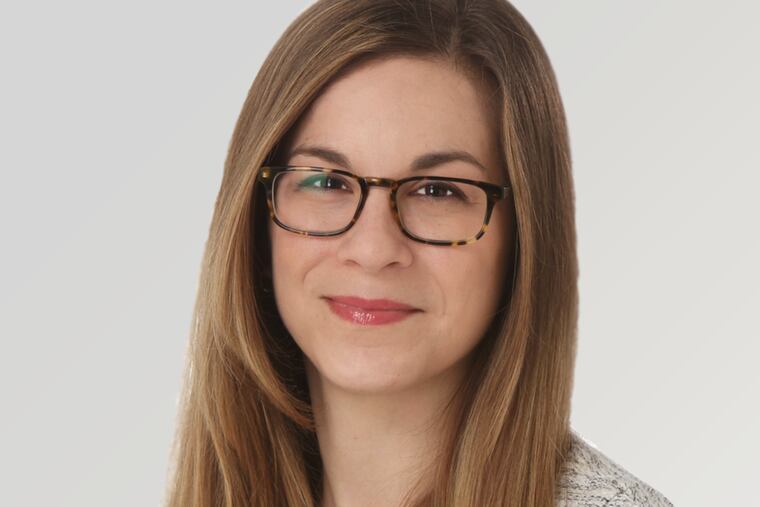Five questions with Meredith Matone, the new head of CHOP Policy Lab
Meredith Matone took over as director of CHOP Policy Lab in October after 13 years as a public health researcher.

Maternal mortality, food insecurity, and a rise in child behavioral health problems are among the most entrenched public health issues in Philadelphia. A new research director at the Children’s Hospital of Philadelphia is now inviting the people most affected by these challenges to work alongside academic researchers to devise solutions.
The pilot program at CHOP PolicyLab is an example of what “the future of health equity research” could look like, said Meredith Matone, who in October took over as director of CHOP PolicyLab, a center focused on translating academic research into community programs.
Matone has been a public health researcher with CHOP PolicyLab for 13 years and most recently worked as its scientific director. She replaces longtime director David Rubin, who co-founded the organization in 2008.
CHOP PolicyLab employs 35 faculty researchers, plus a team of more than 80 public health, law, and communications professionals.
The Inquirer spoke with Matone about CHOP PolicyLab’s work and how to improve the pathway from academic research to effective community programs.
This interview has been lightly edited for length and clarity.
What are the most pressing pediatric health issues for PolicyLab to investigate?
A core value of the PolicyLab is that all children deserve a healthy start to life, yet we know there are profound inequities in pediatric health outcomes. For us, the most pressing research is research that helps us reduce disparities in health outcomes for children.
Among those are social safety net programs. We have a growing body of research around food insecurity and understanding the impact of optimization of programs like WIC. We know that child poverty, particularly in Philadelphia, is a huge determinant of health outcomes.
The needs around behavioral health treatment, access, and prevention services are profound. We have a large portfolio that’s focused on how we can implement best practices in primary care and community settings.
Caregiver health is a determinant of child health and well-being, and we know there is a maternal morbidity and mortality crisis here in our community, as well as nationally. We have a portfolio of work looking at the pediatric role in screening for postpartum health. What is the role of pediatrics in supporting caregiver health, when we see postpartum visit rates are so low but infant well visits are so high? How do we leverage that?
What are your priorities in your first year as director?
I’m most excited about digging in on the role of building and strengthening our partnership with organizations outside the health system. We’re building out ways to engage more directly. For instance, we established a community engagement pilot grant that pairs faculty with a community member to co-lead and co-create pilot projects. That’s one of the ways we’re thinking about building out the infrastructure, so that we can train the next generation of pediatric health services researchers, including in this community.
How does the community engagement pilot grant work?
We’re asking community members what their concerns are and engaging them to be involved. It changes the dynamic. We have leverage, resources, and a set of skills that can be used to support a community agenda, and it’s really about understanding how to do that in a way that meets the needs the community sees as most pressing.
The pilot grant program just funded our second cohort of seven awardees who are getting started in areas of adolescent health, intimate partner violence, trauma informed care. Some really exciting projects are developing.
This feels like the way forward for a health equity research agenda in pediatrics.
What are the benefits of developing programs with community members, not just for them?
I think at the most basic level, it respects the lived experience of the individuals who we’re hoping to touch with our programming. We’re sharing power and decision-making around what programming touches families and how. There’s a respect for how resources are prioritized and allocated, and making sure the individuals whom we are working on behalf of have a voice in these decisions.
What has the response been so far?
We’re still learning about how we can make ourselves available for this, but we got a robust response for applications and are now working with a number of organizations. Some of these key leaders, who are really embedded at the ground level with the community on some of our most pressing social and health issues, have come to the table excited to partner and share voice.